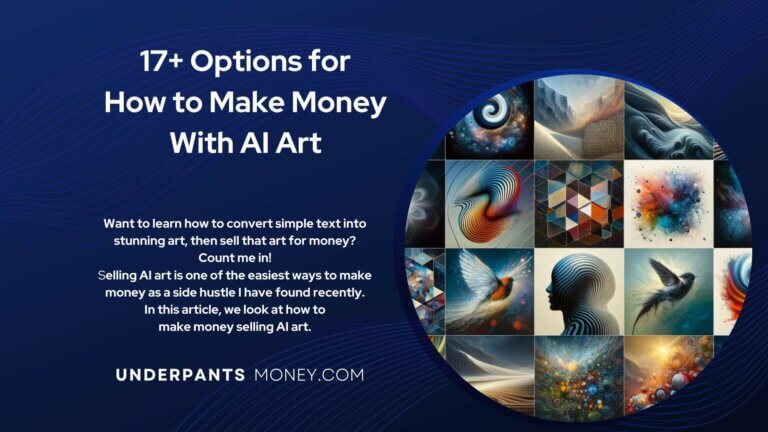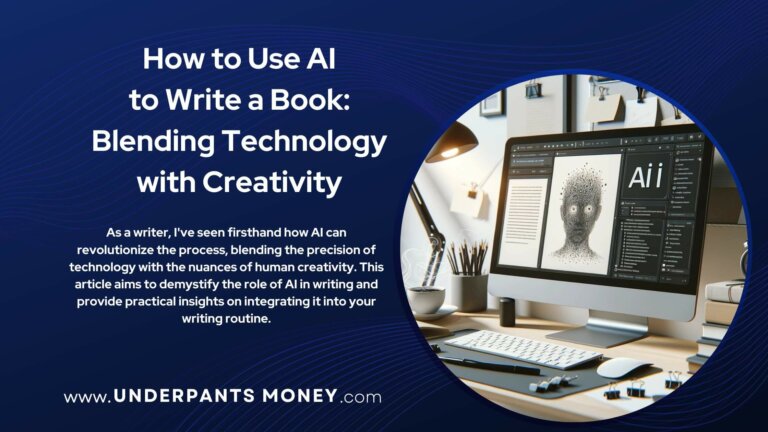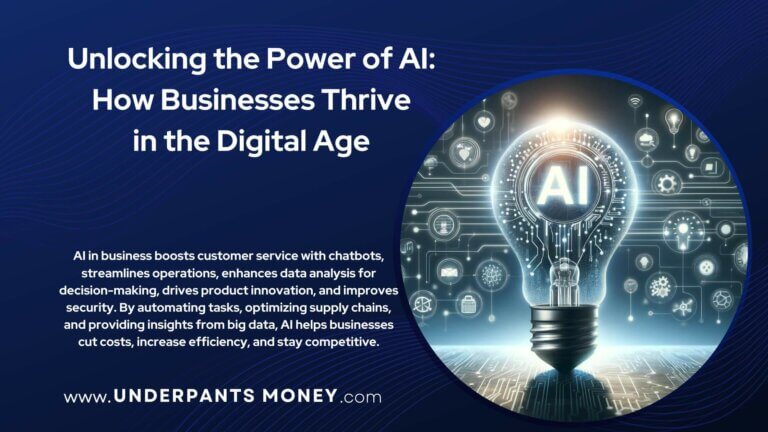Is Affiliate Marketing Legit or a Well-Disguised Scam? The Facts Revealed

In the dynamic world of online commerce, affiliate marketing stands out as a legitimate and thriving business model. Far from being a questionable scheme, it’s a robust industry, with global affiliate marketing spending projected to reach $15.7 billion by 2024. In the United States, affiliate marketing is expected to contribute $9 billion, showcasing its significant impact on the digital economy. The integration of AI tools in affiliate marketing has not only streamlined processes but also heightened the potential for success, making this model more efficient and lucrative than ever before. This article aims to explore the reality of affiliate marketing, backed by data and industry insights, to dispel myths and highlight its legitimacy as a sustainable online business venture.
What is Affiliate Marketing?
Affiliate marketing is a performance-based marketing strategy where affiliates promote a company’s products or services and receive a commission for each sale or action completed through their referral. It’s a win-win: businesses expand their reach, and affiliates earn by leveraging their platforms, be it blogs, social media, or websites.
Is Affiliate Marketing Legit?
Yes, affiliate marketing is a legitimate business model. It’s a well-established part of the digital marketing industry, where affiliates earn commissions by promoting products or services for other companies. This performance-based marketing strategy is widely adopted and recognized for its effectiveness. With global affiliate marketing spending projected to reach $15.7 billion by 2024, it’s a thriving and credible online business opportunity.
Key Takeaways
- Affiliate Marketing’s Legitimacy: A profitable and growing online business model, projected to reach $15.7 billion globally by 2024.
- Impact of AI: AI tools enhance affiliate marketing by improving targeting, personalization, and efficiency.
- Realistic Expectations: Success requires time, strategic planning, and consistent effort, debunking the ‘get-rich-quick’ myth.
- Ethical Practices: Transparency and quality are essential for building trust and sustainability in affiliate marketing.
- Future Outlook: Emerging trends and technologies, especially AI, indicate a bright future for affiliate marketing.
Evolution of Affiliate Marketing in the Digital Age
The digital age has revolutionized how affiliate marketing works. In the early days, it was predominantly about banner ads and emails. Today, it’s an intricate system involving sophisticated strategies and channels, including social media, blogs, and SEO. Notably, the global affiliate marketing industry is booming, with estimates suggesting a growth to $15.7 billion by 2024. In the United States alone, affiliate marketing spending is expected to hit $9 billion, making it a significant player in the digital marketing space.

The Role of AI in Transforming Affiliate Marketing
Artificial Intelligence (AI) has transformed affiliate marketing into a more efficient and effective practice. AI technologies like machine learning algorithms, data analytics, and automated systems help affiliates in targeting and personalizing their marketing efforts more accurately. For instance, AI can analyze consumer behavior patterns and predict which products or content will resonate best with specific audience segments. This AI-driven approach not only enhances the precision of marketing strategies but also boosts conversion rates significantly. For affiliates, this means higher earnings potential and for businesses, it results in increased sales and better ROI.
The Impact of AI on Affiliate Marketing Success
The incorporation of AI into affiliate marketing strategies has had a profound impact:
- Predictive Analytics: AI tools can analyze past consumer behavior to predict future buying trends, allowing affiliates to tailor their content and offerings.
- Personalization at Scale: AI enables personalized marketing at a scale previously unattainable, targeting individual preferences and improving customer experience.
- Efficient Data Management: With AI, the massive amounts of data generated through affiliate marketing campaigns can be effectively managed and utilized for strategic decisions.
This technological integration is crucial in dispelling the myth that affiliate marketing is a scam. Instead, it establishes the model as a data-driven, effective, and legitimate marketing strategy in the modern digital economy.
Demystifying Affiliate Marketing Myths

Tackling the ‘Get Rich Quick’ Myth
A common misconception about affiliate marketing is that it’s a quick path to wealth. However, like any legitimate business, success in affiliate marketing requires dedication, strategy, and time. While the potential for significant earnings exists, it’s not an overnight occurrence. In fact, statistics show that only a small percentage of affiliate marketers achieve high earnings immediately. For most, it’s a gradual process of building a network, understanding market trends, and refining strategies.
Differentiating Legitimate Opportunities from Scams
The digital marketplace is vast, and not all opportunities are created equal. While there are countless legitimate affiliate programs, there are also dubious schemes. The key to differentiation lies in due diligence. Legitimate programs are usually transparent about their terms, offer realistic commission structures, and are associated with reputable companies. In contrast, scams often promise exaggerated returns and lack transparency. Utilizing AI-powered tools for market analysis and program vetting can significantly aid in identifying trustworthy opportunities.
| Common Misconceptions | Facts about Affiliate Marketing |
| Affiliate marketing is a pyramid scheme. | Affiliate marketing involves promoting products or services and earning a commission on sales, not recruitment. |
| Affiliate marketing is a get rich quick scheme. | Affiliate marketing requires effort, time, and dedication to build a sustainable income stream. |
| Affiliate marketers engage in spamming. | Reputable affiliate marketers focus on providing value and promoting relevant and high-quality products to their audience. |
How AI Helps Identify Genuine Opportunities
AI is transforming how affiliates discern between genuine and fraudulent opportunities. AI algorithms can analyze vast amounts of data from various sources to identify patterns that are indicative of scams. They can also assess the credibility of programs based on historical data, user reviews, and market trends. Furthermore, AI aids in predicting the profitability of products or niches, helping affiliates make informed decisions about where to invest their efforts for maximum return.
The Power of AI in Ensuring Legitimacy
AI’s role in affiliate marketing goes beyond just identifying opportunities. It’s about ensuring a level of legitimacy and trust in the programs affiliates choose to engage with. By leveraging AI for data-driven insights, affiliates can navigate the digital marketplace with greater confidence and efficiency, further solidifying affiliate marketing as a legitimate business model.
The Legitimacy and Success of Affiliate Marketing
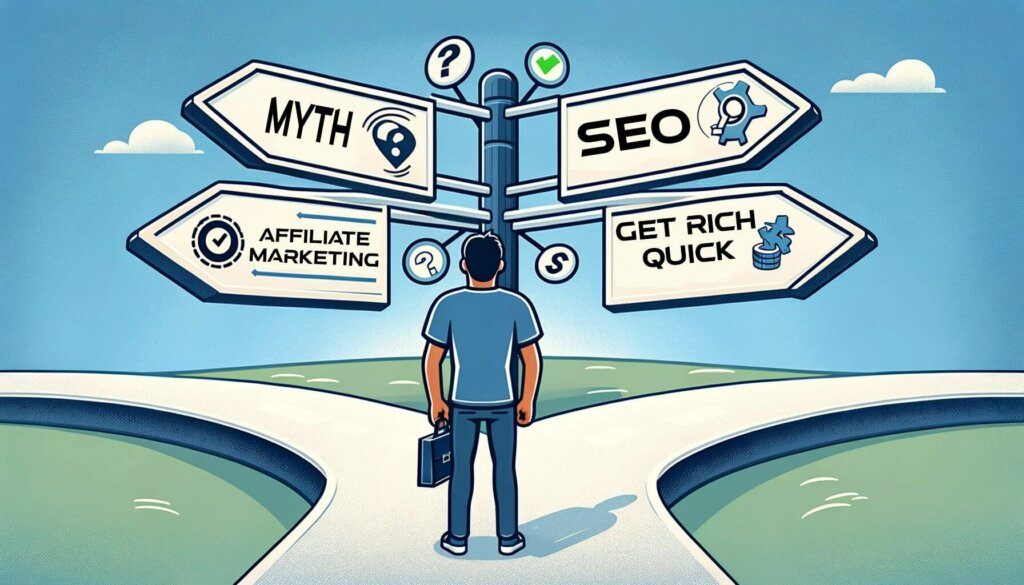
Success Stories and Case Studies
Affiliate marketing has numerous success stories that demonstrate its validity and potential for substantial earnings. From bloggers and influencers to large-scale affiliate networks, the successes span various industries and niches. For instance, Pat Flynn of Smart Passive Income reported over $100,000 in affiliate earnings per month. These success stories are not just anomalies but rather examples of what is possible through dedication and strategic planning in affiliate marketing.
A few popular networks are ShareASale and Clickbank.
Key Statistics and Growth Trends in Affiliate Marketing
The numbers speak for themselves in showcasing the legitimacy of affiliate marketing. According to a report by Statista, affiliate marketing spending in the U.S. is expected to reach $8.2 billion by 2022, up from $5.4 billion in 2017. This growth trajectory is indicative of the expanding role of affiliate marketing in the overall marketing landscape. Moreover, a study by the Performance Marketing Association found that affiliate marketing contributes to 16% of all online orders, making it a significant channel in the digital marketing world.
AI’s Impact on Affiliate Marketing Success
AI has been a game-changer in affiliate marketing, providing tools for better targeting, analytics, and efficiency. For example, AI-driven platforms can analyze consumer data to identify the most effective marketing strategies, optimize ad placements, and personalize content for specific audiences. This level of precision, enabled by AI, contributes to higher conversion rates and more successful affiliate campaigns. The use of AI in affiliate marketing not only enhances its effectiveness but also adds to its credibility as a sophisticated and evolving online business model.
Affiliate Marketing: A Proven Avenue for Growth
These insights affirm that affiliate marketing is far from being a scam; it is a legitimate and profitable online business model. The success stories, backed by solid statistics and the integration of AI, illustrate a vibrant landscape ripe with opportunities for growth and success.
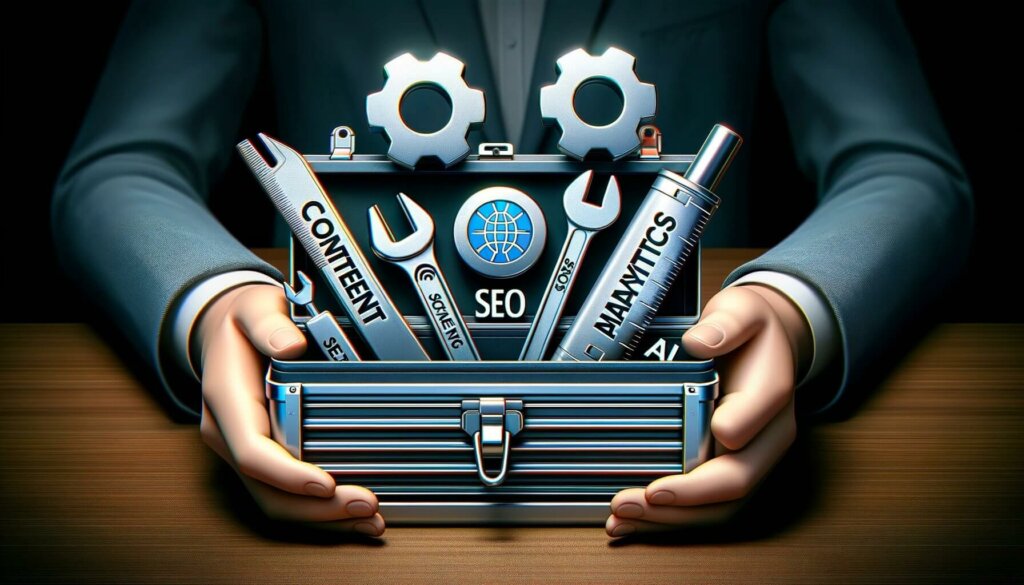
Strategies for Thriving in Affiliate Marketing
Affiliate marketing, when navigated correctly, offers a world of opportunities for earning and growth. Success in this field isn’t just about choosing the right products or services to promote; it’s also about employing effective strategies and leveraging the latest tools, including AI, to maximize results.
Choosing the Right Niche and Products
The first step to a successful affiliate marketing journey is selecting a niche and products that align with your interests and audience. A report by Statista indicates that sectors like fashion, electronics, and health and wellness are among the top-performing niches in affiliate marketing. It’s crucial to choose products that not only resonate with your audience but also have a good track record of sales.
Best Practices in Affiliate Marketing and the Use of AI Tools
To excel in affiliate marketing, adopting best practices is key:
- Content is King: Creating high-quality, relevant content is essential. Whether it’s blog posts, videos, or social media content, providing value to your audience builds trust and engagement.
- SEO Optimization: Utilize SEO strategies to increase visibility and drive organic traffic to your content.
- Utilizing AI for Personalization: AI tools can help personalize content for your audience, making your recommendations more relevant and appealing. AI can also assist in analyzing user data to understand preferences and behaviors, enabling more targeted marketing efforts.
- Tracking and Analytics: Use AI-powered tools to track the performance of your affiliate links and campaigns. This data is invaluable for understanding what works and making informed adjustments to your strategy.
Building a Sustainable and Ethical Affiliate Marketing Business
Building a long-term, successful affiliate marketing business requires a focus on sustainability and ethics:
- Transparency: Always be transparent with your audience about your affiliate relationships. Trust is crucial in affiliate marketing.
- Quality over Quantity: Focus on promoting products or services you truly believe in. Quality recommendations foster credibility and loyalty among your audience.
- Continuous Learning: Stay updated with the latest trends and advancements in affiliate marketing and digital marketing, especially the emerging AI technologies that are shaping the industry.
Affiliate Marketing: A Path to Success
Adopting these strategies not only enhances the chances of success in affiliate marketing but also establishes it as a credible and ethical business practice. With the right approach and the aid of advanced tools like AI, affiliate marketing can be a rewarding and sustainable online business venture.

The Future of Affiliate Marketing
As we look towards the future, it’s clear that affiliate marketing is not just a fleeting trend but a sustainable and evolving aspect of the digital economy. The integration of advanced technologies and changing market dynamics are set to further shape and solidify its place as a legitimate business model.
Emerging Trends in Affiliate Marketing
The affiliate marketing landscape is constantly evolving, with new trends emerging as technology advances. For instance, the rise of voice search and smart devices is opening new avenues for affiliate promotions. Influencer marketing is also becoming increasingly intertwined with affiliate strategies, as influencers leverage their audience trust to promote products more effectively.
The Growing Role of AI and Machine Learning
Artificial Intelligence (AI) and Machine Learning (ML) are at the forefront of transforming affiliate marketing. These technologies are enabling more personalized and targeted marketing strategies. AI algorithms can analyze consumer behavior, predict trends, and automate repetitive tasks, making marketing campaigns more efficient and effective. As these technologies continue to advance, they will offer even more sophisticated tools for affiliates to enhance their strategies and boost their earnings.
Affiliate Marketing as a Viable Long-Term Business Model
Looking at the current trends and technological advancements, it’s clear that affiliate marketing is more than just a legitimate business model; it’s a thriving sector with immense potential for growth. The continuous innovation in digital marketing tools and strategies, coupled with the increasing reliance on online shopping, positions affiliate marketing as a key player in the global economy. This makes it a viable and attractive option for entrepreneurs and marketers looking to build a sustainable online business.

Conclusion: A Bright Future Ahead
In exploring the realm of affiliate marketing, we’ve traversed through its evolution, debunked common myths, and witnessed the impactful role of AI in shaping its future. The journey through statistics, trends, and success stories leads to an undeniable conclusion: affiliate marketing is not only a legitimate online business model but also a flourishing and adaptable one.
Affiliate Marketing: A Legitimate and Sustainable Path
Affiliate marketing stands as a testament to the opportunities that the digital era offers. It’s a field where dedication, strategy, and the right use of technology can lead to substantial success. The integration of AI tools has further propelled its potential, making it more effective and accessible to a wider range of individuals and businesses.
Looking Ahead with Optimism
As we look forward, the future of affiliate marketing shines bright. With ongoing advancements in technology and a growing online marketplace, affiliate marketing is poised to continue its upward trajectory. It remains a viable and attractive avenue for entrepreneurs and marketers who seek a dynamic and rewarding online business endeavor.
Embracing the Potential of Affiliate Marketing
For those considering a venture into affiliate marketing, the message is clear: with the right approach, tools, and mindset, it can be a rewarding and profitable journey. Affiliate marketing is a credible business model that offers growth, adaptability, and success in the digital economy.
In conclusion, affiliate marketing transcends the baseless claims of it being a scam. It stands proudly as a legitimate, effective, and evolving domain within the vast landscape of online business.
Frequently Asked Questions
Is affiliate marketing still profitable in 2024?
Absolutely. Affiliate marketing continues to be a profitable venture, with global spending projected to reach $15.7 billion by 2024. The key to success lies in adopting the right strategies and leveraging the latest technologies, including AI.
How do I differentiate between legitimate affiliate marketing and scams?
Legitimate affiliate programs are transparent about their terms and offer realistic commission structures. They are usually associated with reputable companies. In contrast, scams often promise exaggerated returns and lack clarity in their operations. Conducting thorough research and using AI tools for analysis can help identify genuine opportunities.
Can beginners succeed in affiliate marketing?
Yes, beginners can succeed in affiliate marketing, but it requires time, effort, and learning. Starting with a niche you’re knowledgeable about, creating quality content, and gradually building your marketing skills are crucial steps toward success.
What role does AI play in affiliate marketing?
AI plays a significant role in affiliate marketing by enhancing targeting, personalization, and efficiency. It aids in analyzing consumer data, predicting trends, and automating tasks, leading to more effective marketing strategies and higher conversion rates.
Are there any ethical considerations in affiliate marketing?
Ethical practices are fundamental in affiliate marketing. This includes being transparent with your audience about affiliate relationships, promoting products you genuinely believe in, and avoiding misleading claims. Ethical practices not only build trust with your audience but also contribute to the sustainability of your affiliate marketing business.
Is affiliate marketing a scam?
No, affiliate marketing is a legitimate way to make money online. However, there are scams associated with it that one should be aware of.
What is affiliate marketing and how does it work?
Affiliate marketing is a performance-based marketing strategy where affiliates earn a commission for referring customers to a merchant or service provider. Affiliates promote products or services through special links, banners, or other forms of advertising that direct customers to the merchant’s website. When a referred customer makes a purchase, the affiliate earns a commission.
What are the benefits of affiliate marketing?
Affiliate marketing offers benefits for both merchants and affiliates. For merchants, it provides access to a wider customer base, increased exposure, and reduced marketing costs. Affiliates can promote products they believe in, earn commissions on sales, and gain credibility through their recommendations.
What are some common misconceptions about affiliate marketing?
One misconception is that affiliate marketing is a pyramid scheme, where affiliates earn money solely through recruitment. However, this is not true as affiliate marketing is based on promoting products or services and earning commissions on sales, not recruitment.
Is affiliate marketing a legitimate income opportunity?
Yes, affiliate marketing is a legitimate income opportunity. However, it is important to differentiate between legitimate affiliate programs and fraudulent schemes. Thorough research, reading terms and conditions, and trusting your instincts are essential when choosing affiliate programs to avoid falling victim to scams.

